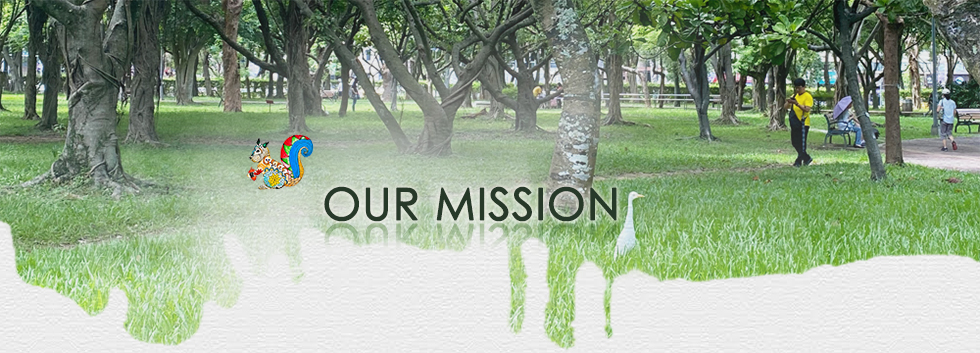Organized by Yu-Chen
Plastic-Free Ocean
(A) Plastic-Free Ocean
 The amount of plastic produced in 1950 was approximately 2 million tons. Since then, the amount has increased at an alarming pace, reaching 34.8 million in 2017. During the Covid-19 period in 2020, there was significant increase in the use of disposable masks and latex gloves. In addition, as demand for food delivery had also increased, the use of takeout boxes and packaging also reached new high. While human beings are improving their living standard, marine species are being harmed by man-made waste and pollution. It is shocking to see footage of straws being pulled out from sea turtle’s nostrils. As humans pursue more convenient lives, it also creates countless wastes. It is estimated that by 2050, there will be more waste in the ocean than fish. Eventually, the marine debris will have a devastating impact on humans.
The amount of plastic produced in 1950 was approximately 2 million tons. Since then, the amount has increased at an alarming pace, reaching 34.8 million in 2017. During the Covid-19 period in 2020, there was significant increase in the use of disposable masks and latex gloves. In addition, as demand for food delivery had also increased, the use of takeout boxes and packaging also reached new high. While human beings are improving their living standard, marine species are being harmed by man-made waste and pollution. It is shocking to see footage of straws being pulled out from sea turtle’s nostrils. As humans pursue more convenient lives, it also creates countless wastes. It is estimated that by 2050, there will be more waste in the ocean than fish. Eventually, the marine debris will have a devastating impact on humans.
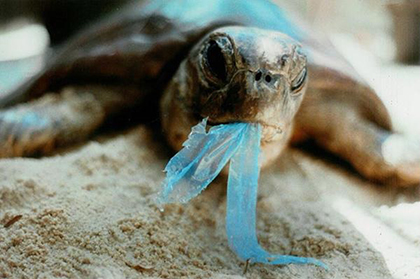
Source: http://www.ifuun.com/a2017834312576/
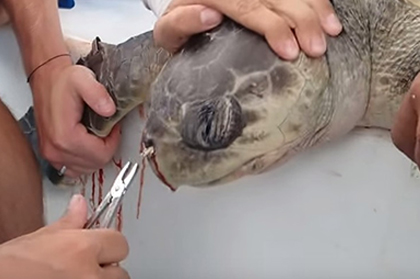
Source: https://www.juksy.com/archives/47454
The Society of Wilderness (SOW) promotes plastic-free ocean concept through public education and collaboration with corporations and the government. According to SOW’s staff for marine conservation – Mr. Hu, Chieh-Sheng, plastic pollution is no different than typical pollutants in the air, water, and soil. In order to resolve pollution issues, a SOP based on scientific research and approach. Through practical experience in Japan and South Korea with Greenpeace, the “Beach Debris Rapid Assessment'' using visual scoring indicators has been developed and adjusted to be suitable to use in Taiwan. The assessment method has been made available so that ocean lovers can do costal assessment for their hometowns. SOW hopes that one day it can achieve the goal of restoring crystal blue appearance to the ocean.
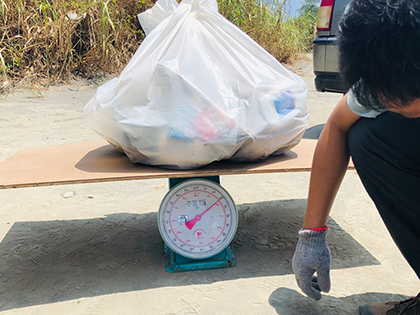
Source: Wilderness Crossing
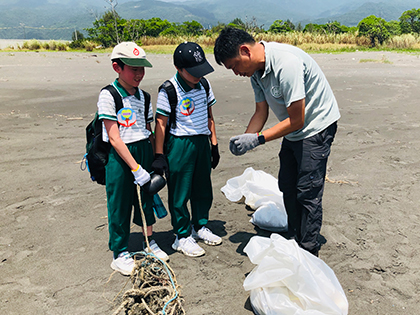
Source: Wilderness Crossing
SOW has been committed to achieving a plastic-free ocean. It hosts International Coastal Cleanup (ICC) every year. The ICC not only promotes cleaning the beach, but also provides data collected from the activity. After collecting years of data, the statistics have implied that non-decomposable one-time use plastics account for 80% of marine waste. Plastic reduction is the only and necessary means of protecting the environment. The government plans to ban the use of plastic products by 2030. As long as everyone can change their habits and start using the four treasures of plastic reduction – green bag, water bottle, tableware, and lunch box, such small changes in habits can lead to a plastic-free ocean. As Neil Armstrong’s famous quote: That’s one small step for man, one giant leap for mankind.
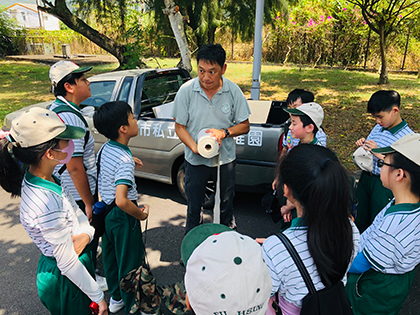
Source: Wilderness Crossing
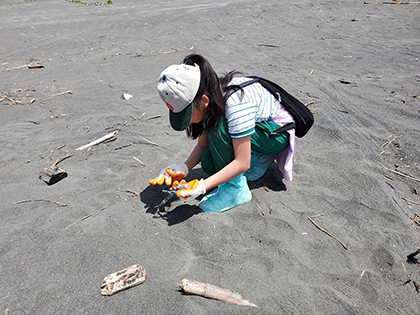
Source: Wilderness Crossing
(B) Ocean Conservation
According to The Food and Agriculture Organization of the United Nations estimate, over 70% of the world’s fish species have been harvested. The aquaculture has produced feeds, faeces, chemicals such as antibiotics, anti-inflammatory, and detergents, which have entered the ocean and impacted marine ecosystems. Fishing gears and plastic bags being mistaken as squid and jellyfish and consumed by sea turtles or dolphins, which often result in suffocation and death. The ocean acidification has become more severe with increasing levels of mercury content in the ocean, which is estimated to increase by 50% in the next few decades. Mercury can make it way into the food chain. Humans can intake mercury by consuming seafood. Furthermore, offshore drilling and oil transportation facilities also cause coastal erosion, further damaging the ocean’s biological chain.
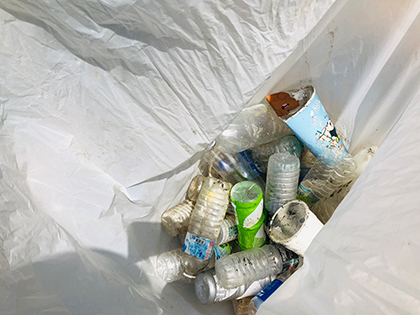
Source: Wilderness Crossing
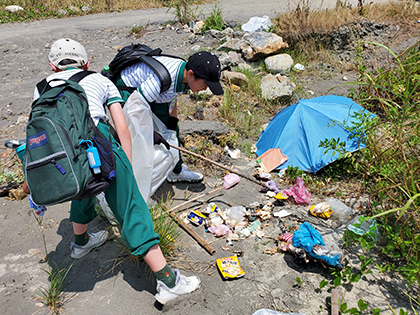
Source: Wilderness Crossing
SOW cooperates and collaborates with corporations, governments, and the public, raising general awareness on the importance of ocean conservation through seminars, beach cleanup, ocean exhibitions that fall under the three strategies of “Industrial Innovation, Citizen Protection, and Policy Reform”. The true meaning of the beach cleanup is to let participants know the severity of marine waste, and that people will start making behavior changes and influences on others to make effort to reduce waste. If we can start reducing the amount of marine debris year by year, we can leave future generations with a crystal white beach to run on, and marine species with a clear blue ocean to swim freely in.

Source: Wilderness Crossing
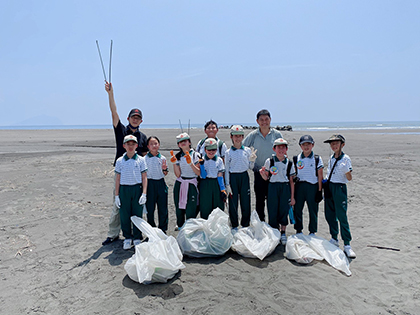
Source: Wilderness Crossing
At present, there is still no international provision or policy that can completely solve ocean problems. SOW believes that as long as ocean conservation can be started at a young age, each participation or attention will become a contribution to ocean conservation. As ecological preservation is no easy task and can often be impacted in an instant, I urge everyone to pay more attention to ocean conservation. SOW hopes that environmental protection can start from you and me. The educated can become the educator, spreading knowledge of marine conservation, restoring nature with ocean sustainability.
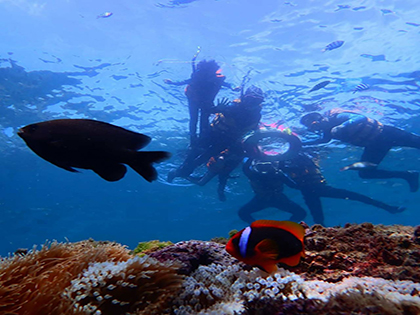
Source: Wilderness Crossing
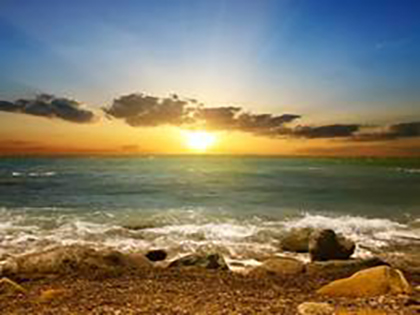
Source: Wilderness Crossing
- http://www.ifuun.com/a2017834312576/
- https://www.juksy.com/archives/47454

